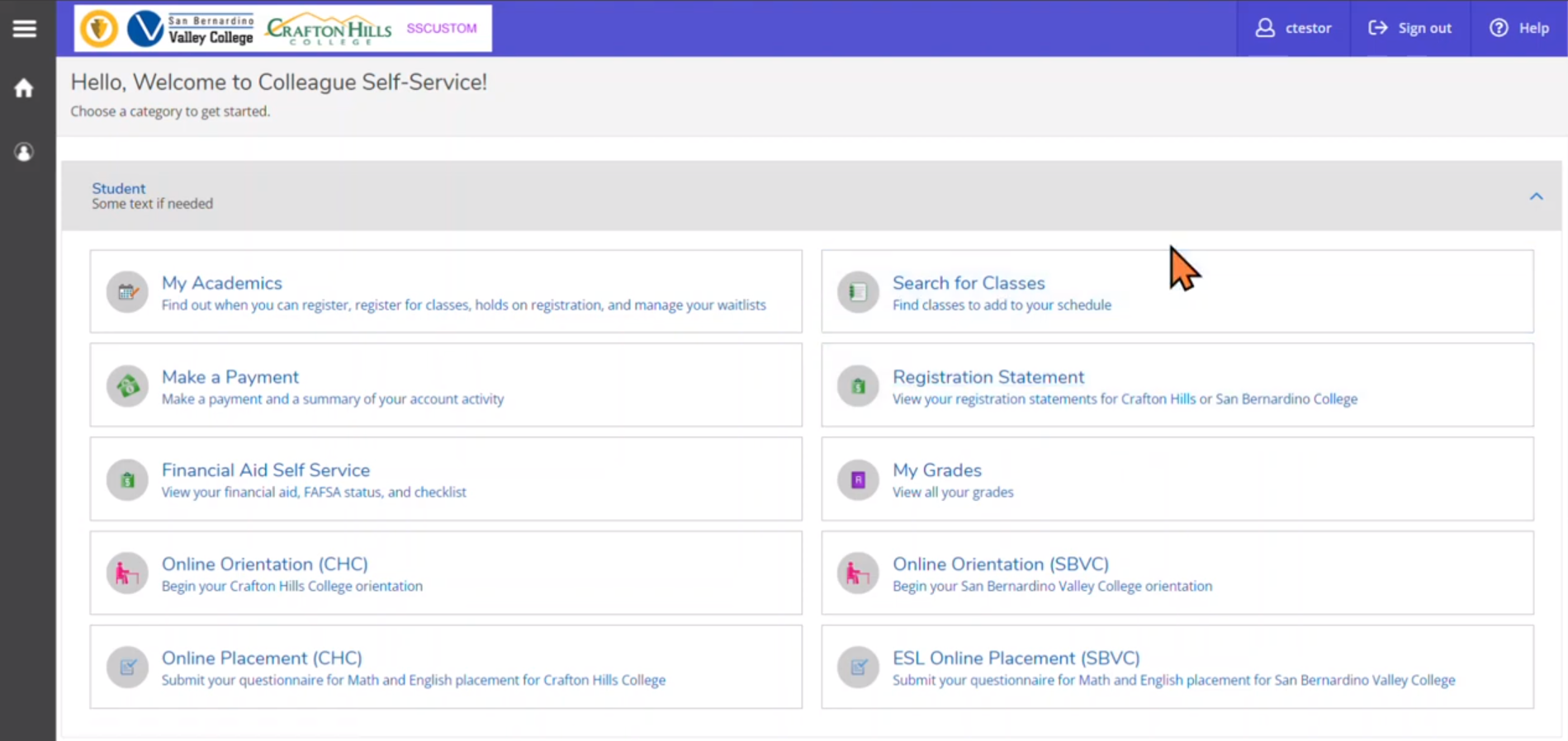Program Details
Crafton Hills Paramedic Program offers two programs per year. The Spring Term paramedic program begins in January and concludes in late December. The Fall Term paramedic program begins in late Auguast and concludes in late July. The program is broken down into three keys sections for optimal success.
1. Didactic (Approx. 460 hours)
During this portion of the program, learning occurs through lectures, interactive presentations, skills labs, and simulations. The January program schedule mirrors a fire department 48/96 schedule and days of the week are arranged to follow a "shift schedule" from approximately 9 a.m. to 6 p.m and meet over a 16 week period. Classes in the August program are held Tuesday through Thursday from approximately 9 a.m. to 6 p.m. and meet over a 16 week period.
2. Clinic
Upon completion of the didactic phase of paramedic training, the paramedic intern is required to complete a clinical internship. This phase of training provides the paramedic intern the opportunity to practice and refine assessment and technical skills. Clinical preceptors can have a significant impact on the learning experience the intern has during this phase of training. They are the interns primary resource. They reinforce the intern’s didactic knowledge and technical skills and they evaluate performance.
The paramedic intern attends seventeen clinical shifts in the Burn Unit, Operating Room, Labor and Delivery, Pediatric Emergency Department, and Emergency Department.
3. Field
The field internship will offer the student the opportunity to perform many or all of the skills explored in the didactic and clinical portions of the program. The environment will change from the controlled to the uncontrolled and will afford the student the environment to “put it all together”. We have contracts with various fire department and transport agencies in Riverside and San Bernardino County. We take great time and consideration when matching preceptors and students to assure the best learning environment for each individual student.
Each intern is provided with a zero (0) shift in order to allow the preceptor and the intern time to become acquainted and for the preceptors to outline their expectations. Field internships typically last between 600-720 hours.
CAAHEP Standard II.C. Minimum Expectations
To prepare competent entry-level Paramedics in the cognitive (knowledge), psychomotor
(skills), and affective (behavior) learning domains with or without exit points at
the Advanced Emergency Medical Technician and/or Emergency Medical Technician, and/or
Emergency Medical Responder levels.
Program Outcomes
| Year | Accepted | Retention | Left the program | NREMT Cognitive Exam Pass Rates | Job Placement Rates |
|---|---|---|---|---|---|
| 2019 | 46 | 45 | 1* | 100% | 97.8% |
| 2020 | 43 | 36 = 88.4% | 7* | 97.4% | 94.7% |
| 2021 | 42 | 34 = 81% | 8* | 97.1% | 100% |
| 2022 | 53 | 41 = 77.4% | 12* | 90.2% | 100% |
| 2023 | 63 | 58 = 92.1% | 5 | 91.3% | 93.1% |
*Majority of students that left the program were due to job opportunities/personal advancements.*
